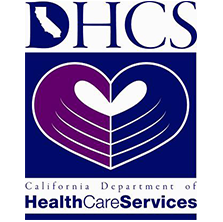Residential Drug Treatment: Los Angeles and Orange County Rehabilitation Programs
Southern California, viewed by many as the nation’s mecca of drinking and drug abuse, is also home to a plethora of world-class options in residential drug treatment. Los Angeles and Orange Counties, rich with rehabilitation programs, are coming into new identities as they become increasingly popular as recovery locales. These areas, once the home of perpetual parties, are entering a new era of health and balance. Addiction treatment is at the forefront of this change.
Recognizing addiction:
If someone close to you has a drug problem, physical signs as well as changed behavioral patterns will inform you about this person’s situation. The physical signs of addiction are varied, but can be quite dramatic. Rapid weight change (usually weight loss), persistent cough or nasal congestion, and a generally sickly appearance are all signals that a person may be addicted to drugs.
Behavioral signs of drug addiction are also pronounced and very noticeable to family and close friends. Irregular sleep patterns, mood swings, disinterest in food, decline in personal hygiene and secretive tendencies are some of the most obvious behavioral indicators.
Though these physical and behavioral signs are usually pronounced, there are some situations where the most noticeable changes in an addict are changes in personality and priorities. A person who once had a sunny disposition can sink into depression. A person who was once easy-going can become constantly anxious, even paranoid. A mother who once loved nothing more than spending time with her children may become distant and spend less and less time at home.
If you observe any of these signs in a loved one, they may be a candidate for residential drug treatment. Los Angeles and Orange County treatment programs are some of the best in the country, and are therefore a good place to start looking when you decide that rehabilitation is needed.
Understanding addiction:
For a person who has never experienced drug addiction firsthand, it is hard to understand why addicts continue to use drugs in spite of this multitude of negative consequences. Unfortunately, logic does not apply in this situation. The definition of addiction is the persistent use of a substance when it is logical to quit (i.e. when it is destroying a person’s life). Drug users who reach this point and still cannot stop have little hope without residential drug treatment. Los Angeles and OC treatment facilities offer top-of-the line treatment programs that can help even the most hopeless addict get clean and sober.
The disease of addiction affects a person twofold – both physically and mentally. The physical aspect of addiction is fairly straightforward and therefore understood relatively well by the general public. When a person uses a drug consistently for a significant period of time, the body grows accustomed to the presence of this drug, readjusting its definition of normality to include this foreign substance. Because of this phenomenon, addicts require constantly increasing amounts of a drug to achieve the “high” they desire. Stemming from the same phenomenon are the physical withdrawal symptoms that an addict will experience upon cessation of drug use. Withdrawal symptoms can range from unpleasant to excruciatingly painful depending on the substance in question. Withdrawal can be dangerous and should be medically supervised within a residential drug treatment, Los Angeles or elsewhere.
The mental aspect of drug addiction is less straightforward, and tends to be misunderstood or ignored completely by most people. Addiction is often written off as the result of poor judgement or lack of moral fiber, when it is in fact a chronic disease whose mental component causes those it affects to make poor decisions. The mind of an addict tricks itself into believing that quitting is impossible. An addict fears nothing more than life without the substance to which he or she is addicted. The prospect of life without drugs seems bleak and miserable. This fear is what causes addicts to maintain their lifestyles even as the things they love most fall by the wayside. As they recover, addicts learn that they are not only capable of living sober, but that a sober life can bring them the peace and happiness they always sought though drugs. Addicts grow as people when they commit to residential drug treatment. Los Angeles and OC treatment programs help addicts discover their true selves and learn to live healthy lives.
Choosing the right residential drug treatment program:
When choosing a locale for residential drug treatment, Los Angeles and Orange Counties are a wise place to begin. These Southern California locales, home to some of the most reputable drug treatment programs in the world, have the added bonus of sunny weather and proximity to the ocean.
For women looking to recover from drug addiction, a gender-specific treatment center is advisable. In an all-female setting, women feel more comfortable speaking candidly about their experiences, and are able to explore the core issues that drove them to use drugs. When it comes to single-sex residential drug treatment, Los Angeles and Orange Counties have a multitude of options.
For women’s residential drug treatment, Los Angeles and Orange County have no better to offer than Safe Harbor Treatment Center for Women. Safe Harbor’s 90-day multilateral treatment program is comprised of structured therapeutic groups, individual counseling, 12-step meetings, life skills development opportunities and social activities. Through these various avenues women are given the opportunity to cleanse their bodies and minds, work through key personal issues, and learn to live as happy sober individuals.
Though Safe Harbor’s recovery curriculum is among the strongest offered by any residential drug treatment, Los Angeles and Orange County are home to no treatment center whose community is more nurturing, welcoming or vibrant. Once women complete Safe Harbor’s 90-day treatment program, most of them choose to move into one of the associated sober living homes, where they can resume work or school but continue to live in a structured environment where they are held accountable for their sobriety. These women are always available to act as mentors to Safe Harbor’s newest generation, forming a sisterhood of women supporting one another in recovery that is unparalleled. Any woman who is looking to leave drugs behind and begin a better life will find what she is looking for at Safe Harbor.
START YOUR JOURNEY WITH
SAFE HARBOR HOUSE
(310) 861-4157
Contact Us Today
Verify Your Insurance




